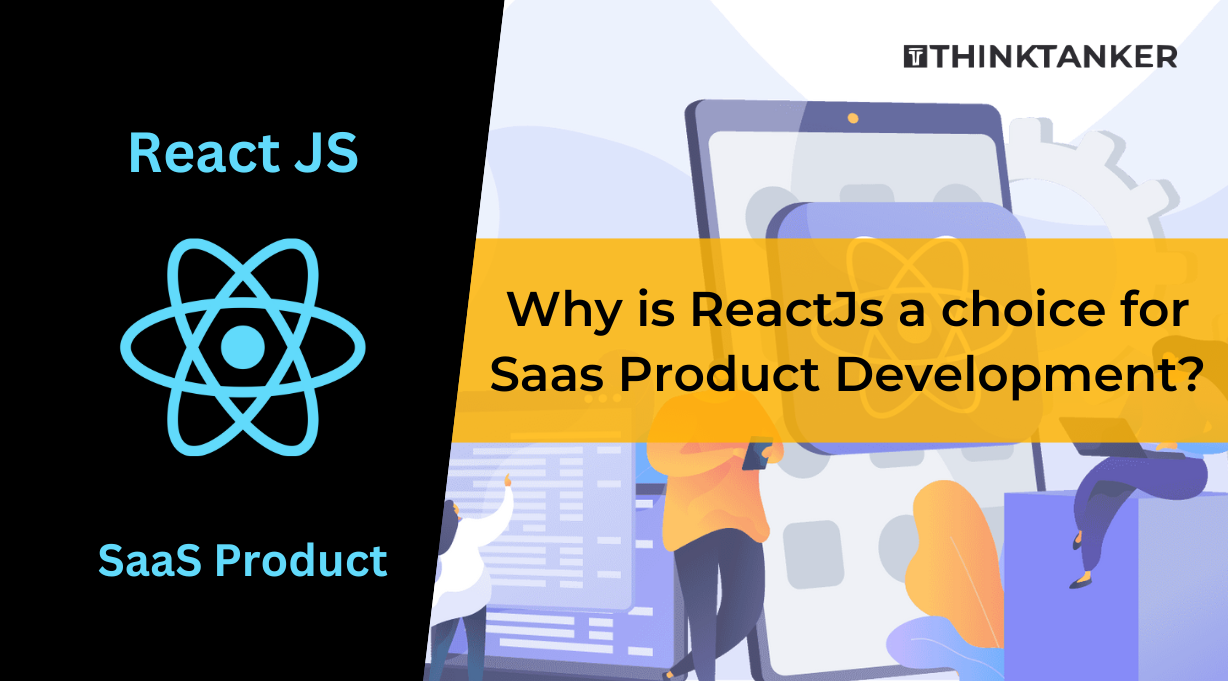Why and Where Should you Use React.JS for Web Development?

Why and Where Should you Use React.JS for Web Development?
React is a JavaScript library for building user interfaces. It was created by Facebook and is used by companies like Netflix, Airbnb, and Walmart. In this article, we’ll discuss why React is a good choice for web development, where you can use it, and some of its key features.
What is React.JS?
React.JS is a JavaScript library used to build user interfaces and web applications. It is one of the most popular frontend libraries that are used today. React.JS is used by Facebook, Instagram, Netflix, and many other large companies.
React.JS has a few key features that make it an attractive option for web development:
1) React.JS uses a declarative programming style, making code more readable and easier to debug.
2) React.JS components are self-contained and reusable, which makes code development more efficient.
3) React.JS is fast because it uses a virtual DOM (document object model), which speeds up the process of updating the UI.
4) React.JS is scalable due to its modularity, allowing developers to create large-scale applications easily.
If you’re looking for a frontend library that is powerful and easy to use, then React.JS is an excellent option for web development.
The benefits of using React.JS
React.JS is a powerful JavaScript library that can be used to create interactive web applications. It is fast, efficient, and easy to use, making it an excellent choice for web developers who want to create responsive and user-friendly websites. React.JS is also open source, which means that a community of developers is constantly improving it. To take these benefits you can always look for a React.JS development company. They wiil have a vast experience in the field and you can hire React.JS developers for your project.
The Drawbacks of React.JS
React.JS is a powerful JavaScript library for building user interfaces, but it does have it own limitations that you must be aware of before using it for web development. One such drawback is that React.JS can be challenging to learn and use if you’re not already familiar with JavaScript. Additionally, because React.JS is a relatively new library, some bugs and inconsistencies still need to be ironed out. Finally, React.JS can be slow to render complex UIs, so keep that in mind if your website or app will have a lot of content or features.
Where and When Should You Use React.JS?
React.JS is a powerful tool for web development, but it’s not always the best choice. Here are a few guidelines for when you should use React.JS and when you might be better off using something else.
If you’re building a small or straightforward app, React.JS can be overkill. It’s designed for larger projects, so you might want to consider a simpler framework if your app doesn’t need all the bells and whistles.
React.JS is also a good choice if you already use JavaScript for your project. If you’re not comfortable with JavaScript, you might want to choose a different framework that uses a language you’re more familiar with.
While working on a frontend UI demanding higher user interaction, React.JS will probably be the best choice. It takes away your pain to code each element separately and then bind them. It takes care of low level algorithm. Hence all you need is to focus on the interface’s view model.
Is your existing codebase getting out of hand? If yes, then React.JS will be the right choice to shift to. Otherwise, soon troubleshooting will become a troublesome task.
Finally, React.JS is a good choice if you need a fast, responsive, and scalable app. React.JS is just one tool in your web development arsenal. It’s not the best choice for every project, but it’s worth considering if you need those features.
Alternatives to React.JS
Although React.JS is an excellent tool for web development, it isn’t the only option out there. If you’re looking for alternatives to React.JS, here are a few options:
AngularJS:
AngularJS is a popular framework for web development created by Google. It’s similar to React because it uses a component-based approach and allows you to create reusable UI components. However, it uses a different programming language (TypeScript) and has a slightly different syntax.
Vue.js:
Vue.js is another popular alternative to React. Like React, it uses a component-based approach and allows you to create reusable UI components. However, it uses a simpler syntax and is easier to learn than React.
Ember.js:
Ember.js is another alternative to React that uses a component-based approach. It’s similar to React because it allows you to create reusable UI components. However, Ember focuses on making development more efficient by providing helpful tools and features such as data binding and automatic code generation.
Conclusion
React.JS is a versatile tool that can be used for web development in a number of different ways. It is fast, efficient, and easy to use, making it an ideal choice for developers looking to create high-quality websites and applications. If you’re having an urge to learn more about React.JS or want to try it out, there are several online resources that can be of your help. For your development project, there are lot of professional development companies available. You can look online for a React.JS development company. They will have skilled and experience developers with complete know how. You can hire React.JS developers form them for a faster and with quality completion of your development project.





